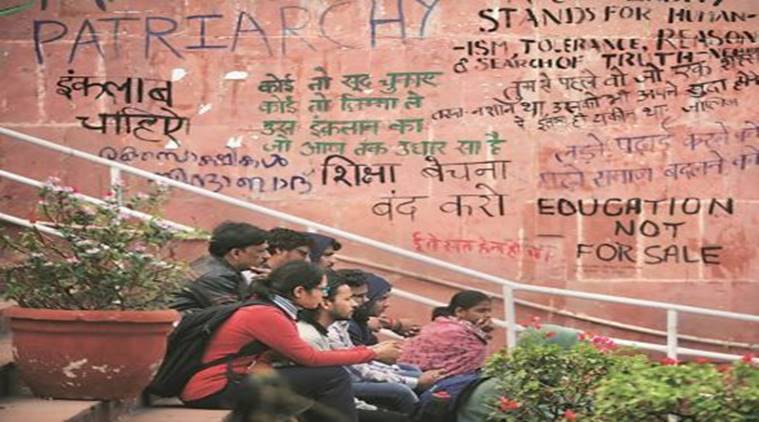
Jawaharlal Nehru University’s (JNU) International Complaints Committee (ICC) sparked controversy on December 28, 2021 for its dubious counselling session on the ‘do’s and don’t’s’ around sexual harassment. The session especially drew flak for its sexist attitude highlighted in statements like “Girls [are] supposed to know how to draw a tangible line (between them and their male friends) to avoid any such harassments.”
The event dated for January 17, 2022 welcomes students “both boys and girls” for monthly sessions to learn about what constitutes as sexual harassment and how to prevent it. It is shocking how there is no mention of transgender or non-binary people who also face sexual harassment.
Speaking to SabrangIndia, ICC Presiding Officer Poonam Kumari said, “Most cases we receive, we feel the boys and girls don’t know about sexual harassment. We are starting this session so that any person who wants to learn about the repercussions of it or what happens after one is found guilty of sexual harassment can know the answers.”
Assuring that the session will be the same for both girls and boys, Kumari said girls should know what they like or don’t like when interacting with a boy. Further, she said boys should know about sexual harassment and know how it will impact their career and the girl’s as well.
“Such incidents should not be taken lightly. This session is to ensure that there will be action before the incident happens,” she said.
However, student bodies such as the All India Students Association (AISA) decried the event, stating that the intent of the counselling session exposes ICC’s attitude of victim blaming. In a press release, the AISA called the counselling “a sham” that will create more unsafe spaces on-campus.
“ICC of JNU has time and again, in its reports, resorted to victim blaming and has gone on to suggest victims take counselling sessions on gender sensitisation. Now we can see that ICC is actively conducting such sessions to teach women how not to get harassed,” said AISA JNU Secretary Madhurima Kundu.
The Gender Sensitization Committee against Sexual Harassment (GSCASH) mentioned by Kundu was an autonomous body within campus that sought to address gender-based issues and instances of sexual harassment. Although the administration disbanded the body on September 18, 2017, teachers and students alike appreciated the democratic functioning of the GSCASH that did not answer the JNU authorities.
Even JNU Student Union President Aishe Ghosh demanded that the ICC be rejected and GSCASH be reinstated. “The ICC has passed such regressive remarks or conducted itself in a way to moral police the survivor. Such a remark creates a space where harassment in such lines becomes rampant and leads to unsafe spaces for women,” she said, while referring to how the ICC put the onus on women to know when to “draw the line.”
As mentioned by Kundu, the ICC failed to provide details as to how transgender and similar non-binary individuals will be included in this session that seeks to teach students about the nitty-gritties of sexual harassment.
Even when Kumari was asked about this issue she said, “We organised this session based on the complaints we have received in the past. If such a person comes to us with questions, we will give answers.”
Queries about teaching students about “consent” were answered with assurances that “consensual relationships are fine”. The ICC representative agreed that consent is important but did not explain how students will be taught to understand the presence of absence of consent in a situation.
Related:
Madras HC issues guidelines for sensitisation of stakeholders in LGBTQIA+ matters
A lady dressed in ripped jeans rips apart eternal ‘Bharatiya’ culture
India Unsafe: The escalating heinous crimes against women
Whatever happened to ‘zero tolerance’ for child abuse by ‘godmen’ and priests?